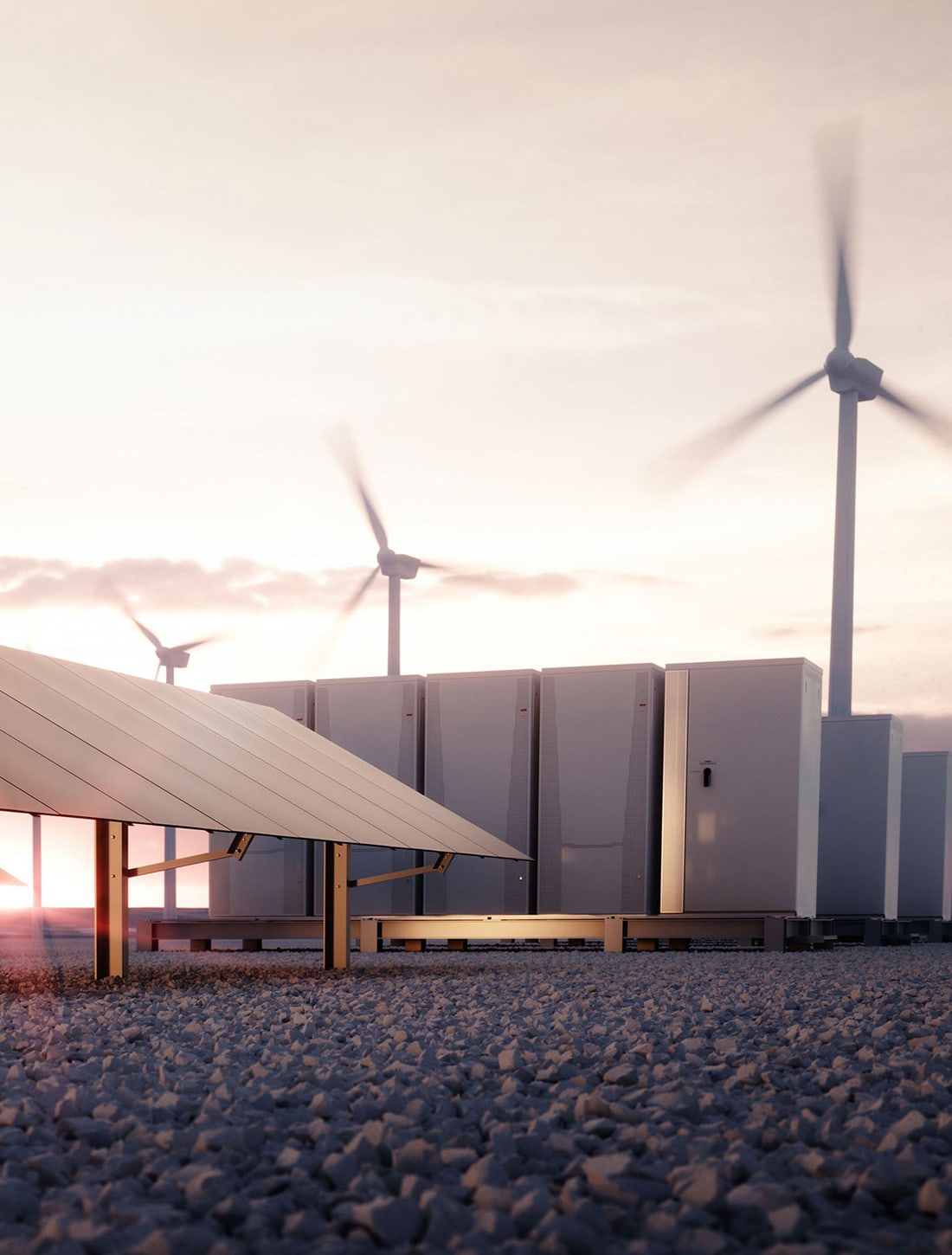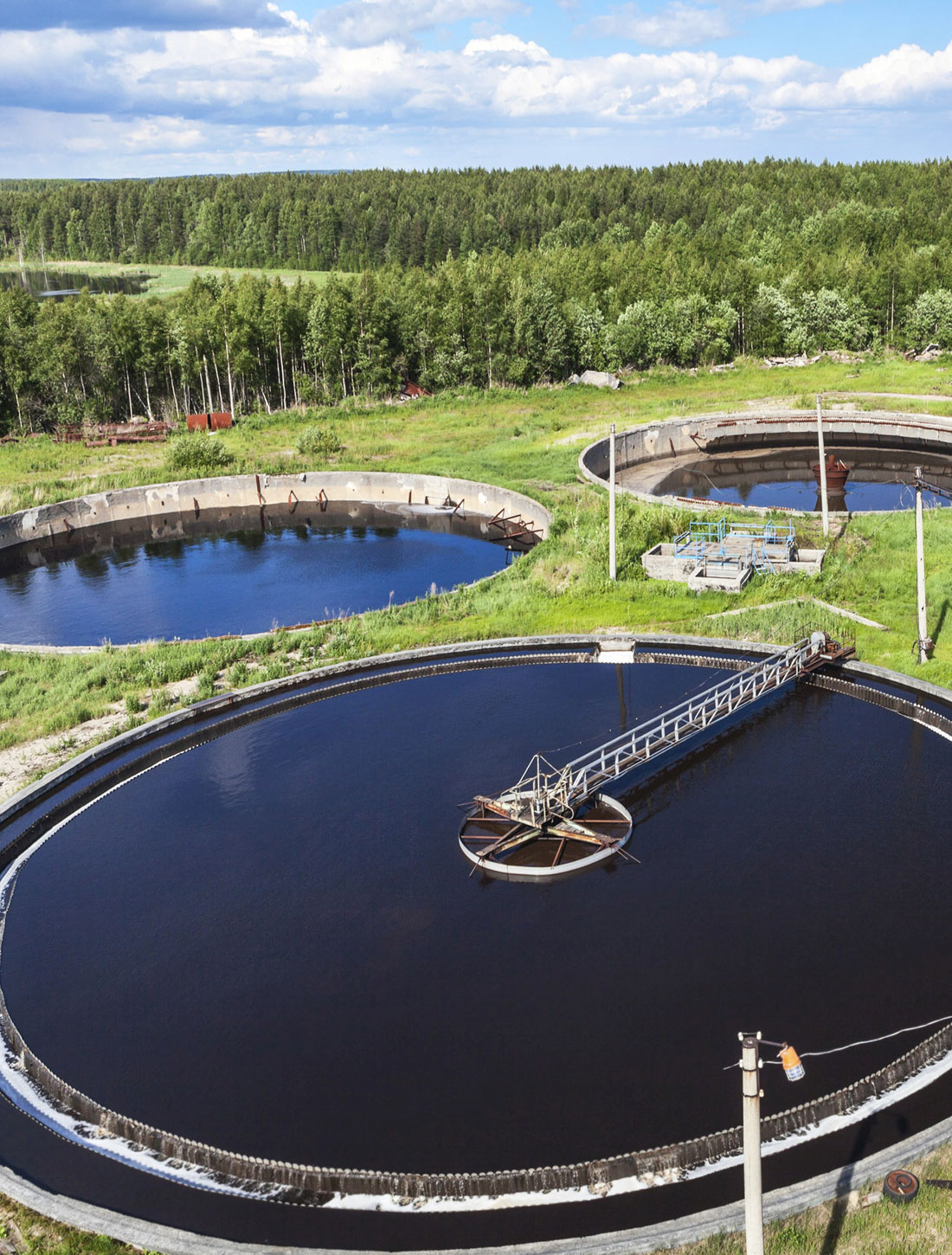- Advanced Energy Storage
- Biosciences and Biosolutions
- Computational Materials Science & Chemistry
- Dense Energy Carriers
- Economic and Life Cycle Assessment (ELCA)
- Metal Corrosion Biology
- Methane to Products
- Technologies for Improving Feedstock Production and Harvest
- Waste Treatment
01Advanced Energy Storage
Electrochemical energy storage technologies are essential components of a sustainable energy future. Safely increasing energy density and cycle life is central to the successful, expanded deployment of these technologies across markets.
The EBI is keenly focused on addressing fundamental questions about materials and devices used for electrochemical energy storage. Our Advanced Energy Storage (AES) research has the potential to redefine the present understanding of electron storage and charge carrier transport processes within conductive media and electrode materials, as well as at the boundaries between these phases.

02Biosciences and Biosolutions
From our inception, the EBI has explored methods for harnessing biology to create tomorrow’s fuels. Based on a decade of research, we recognize that to reach a clean energy future, biological processes are a necessary complement to chemistry and engineering solutions.
Biological processes integrated with chemistry and engineering processes can yield game-changing technologies that produce high quality sustainable energy on a large scale. The EBI partners are harnessing and manipulating microbial and plant biochemical pathways to produce fuels, their intermediate products, and materials. The EBI is uniquely qualified for this work, and draw upon one-of-a-kind bioenergy research farm at the University of Illinois, access to the state-of-the-art fermentation plants at Illinois’ Integrated Bioprocessing Research Laboratory (IBRL) and Berkeley’s Advanced Biofuels Process Demonstration Unit (ABPDU), and our exceptional biological engineering, plant biology, and microbiology faculty.

03Computational Materials Science & Chemistry
Time is of the essence in developing a clean energy future. Theoretical prediction of the characteristics of advanced materials, ranging from the electronic and structural properties to chemical kinetics and equilibria, can more quickly identify optimal research paths, speeding product time to market.
To quickly discover optimal materials and chemistries for a sustainable energy research technology portfolio, the EBI and its partners use computational tools (including machine learning) and develop new computational approaches and techniques. The tools developed under this program can be applied to all EBI research, and therefore can help to address a host of fundamental energy transition questions.

04Dense Energy Carriers
Solar energy is becoming a significant electricity provider worldwide, but that success only hints at its true potential. Employing its power to create dense fuels could unleash applications yet unknown.
Technological advances in photovoltaics have reduced the cost of solar energy, greatly expanding its role in electricity production. The EBI’s research is moving beyond that application to examine solar driven synthesis of dense energy carriers. This area’s studies include projects that can transform solar electricity into stable, energy-rich liquid or solid fuels, ideally using carbon dioxide or other freely available chemicals as building blocks.

05Economic and Life Cycle Assessment (ELCA)
When designing sustainable products and systems, a deep understanding of the economic and environmental impacts of each component is critical. Technoeconomic and societal impact assessments lead to better understanding of supply chain design and its implications for advanced energy technologies and their successful implementation.
Twenty-first century paradigms of technological development demand cradle-to-grave analyses, to ensure current designs overcome past missteps, before production. Technoeconomic analysis combines engineering design and modeling expertise with financial analysis to envision the scale-up of a technology not yet commercialized. This analysis can determine how a given technology will operate within the natural resource and infrastructure constraints of selected location(s), and estimate the potential production costs at commercial scale, relative to competing alternatives. To complement those assessments, societal impact analyses help to determine the effect of a new technology on human and environmental well-being. These analyses consider local, regional, national, international, and geopolitical impacts, including economic, environmental, and health issues resulting from implementation of a new technology. In its holistic project overview, the EBI decisions regarding practical implementation of a developing technology or process are informed by the technoeconomic and societal analyses.

06Metal Corrosion Biology
Metal corrosion from chemical and biological activity affects virtually all industries. The EBI is pursuing effective, sustainable solutions that will reduce costs and downtime.
The global cost of corrosion due to prevention, inspection, maintenance, repair, and lost revenues is estimated to be approximately $1 trillion annually. This is particularly acute in the energy industry, where metal corrosion and fatigue results in facility shutdown, pipeline failure, and environmental disaster. Inadvertent microbial activity is often at the heart of this detrimental process, either deep in the rock matrices of oil reservoirs, or locally in the pipelines, pumps, and holding tanks of the surface facilities. At the EBI we are working to develop a fundamental understanding of microbially induced corrosion by investigating the microbes and mechanisms associated with it. Using the latest techniques, we are developing a conceptual understanding of the processes, and identifying new and effective ways of controlling them.

07Methane to Products
With methane prices low and interest in reducing its climate-forcing impacts high, there is no better time to develop efficient processes that can upgrade methane into high-value, energy dense, stable end products.
The EBI’s collaborative partnerships are developing methods to covert methane to high-value, large-volume products, such as drop-in liquid fuels or commodity chemicals. These projects harness the recent breakthroughs in electrochemistry, nanomaterials, catalysts, computational sciences, and synthetic biology—utilized with cost-effective electron sources such as photovoltaics—to develop new approaches for methane conversion. Methane is readily produced from sustainable natural resources, such as domestic waste, so in the pursuit of carbon neutrality it represents an ideal transition molecule as we move from a world dependent on natural gas resources to a fossil-free future.

08Technologies for Improving Feedstock Production and Harvest
Sustainable feedstock cultivation and harvest are key to any biofuel’s success in the future energy mix. The EBI and its partners continue to research safe, efficient, and scientifically sound approaches to feedstock cultivation for next-generation biofuels.
The EBI and its earliest sponsors established the largest bioenergy research farm at the University of Illinois at Urbana-Champaign, which is aimed at modernizing biomass production systems in anticipation of their eminent deployment.

09Waste Treatment
Traditional lifecycle assessments have often not fully considered the waste stream impacts of a product’s production and use. Today’s focus on considering cradle-to-grave impacts from design to end of life demand a new perspective.
Waste streams range from power plant cooling systems to those from the production and use of modern batteries. The EBI research strives to focus on those and everything in between. For example, to meet discharge requirements that preserve the quality of the receiving water bodies, EBI scientists and faculty are developing cost-effective and reliable biological and chemical processes aimed at capture, conversion, and recovery of waste materials to enhance recyclability, reduce resource burden, and lighten the environmental footprint of new energy related technologies.

Donate
Your generous contribution supports our mission and will enable us to expand our research and community outreach beyond that supported by our sponsors.
Donate


















